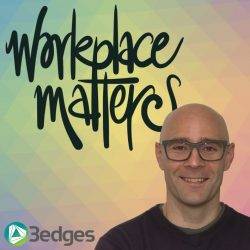June 29, 2017
Major global study identifies the priorities of students and their most favoured potential employers 0
 A new study of 290,000 students worldwide claims that the majority studying business, engineering and IT would prefer to work for medium sized businesses and that they have a very clear idea about the sort of employer they would like to work for. The World’s Most Attractive Employers (WMAE) study from employer branding consultancy Universum Global is now in its 9th year and draws on data from the world’s 12 largest economies to rank the companies students find most desirable for employment. Overall, the majority of students (74 percent) reported that they would prefer to work for a company with fewer than one thousand employees. A larger proportion of talent from Germany, France, and Brazil would prefer to work for larger employers, but overall talent in these markets also said they would prefer to work for smaller firms. For business and engineering / IT students in all countries excluding Russia, India and Germany, work/life balance remains the overall top career goal. Results reveal Russian students in both fields of study still prefer job security, while Indian students in both fields of study are far more interested in having an international career than they are in other career goals.
A new study of 290,000 students worldwide claims that the majority studying business, engineering and IT would prefer to work for medium sized businesses and that they have a very clear idea about the sort of employer they would like to work for. The World’s Most Attractive Employers (WMAE) study from employer branding consultancy Universum Global is now in its 9th year and draws on data from the world’s 12 largest economies to rank the companies students find most desirable for employment. Overall, the majority of students (74 percent) reported that they would prefer to work for a company with fewer than one thousand employees. A larger proportion of talent from Germany, France, and Brazil would prefer to work for larger employers, but overall talent in these markets also said they would prefer to work for smaller firms. For business and engineering / IT students in all countries excluding Russia, India and Germany, work/life balance remains the overall top career goal. Results reveal Russian students in both fields of study still prefer job security, while Indian students in both fields of study are far more interested in having an international career than they are in other career goals.





















 An increasing number of workers are taking on caring responsibilities, be this for children, elderly relatives or other dependents, and it’s becoming a major cause of workforce absence, claims new research. According to data released by group risk industry body GRiD, for 61 percent of employers these issues are a main cause of short-term absence (less than 4 weeks); for 49 percent of employers these issues are a main cause of mid-term absence (4 weeks to 6 months) and for 43 percent of employers these issues are a main cause of long-term absence (in excess of 6 months). They can also be a contributory factor in the development of mental illness or the deterioration of mental health. Indeed, mental ill-health is another major cause of absence, due to the knock-on effects of stress and deteriorating mental health that results in more absence. In terms of what employers are doing to reduce absence and improve attendance, flexible working comes out as the top-rated solution, with 36 percent of employers citing this as one of the measures they have put in place to minimise absence.
An increasing number of workers are taking on caring responsibilities, be this for children, elderly relatives or other dependents, and it’s becoming a major cause of workforce absence, claims new research. According to data released by group risk industry body GRiD, for 61 percent of employers these issues are a main cause of short-term absence (less than 4 weeks); for 49 percent of employers these issues are a main cause of mid-term absence (4 weeks to 6 months) and for 43 percent of employers these issues are a main cause of long-term absence (in excess of 6 months). They can also be a contributory factor in the development of mental illness or the deterioration of mental health. Indeed, mental ill-health is another major cause of absence, due to the knock-on effects of stress and deteriorating mental health that results in more absence. In terms of what employers are doing to reduce absence and improve attendance, flexible working comes out as the top-rated solution, with 36 percent of employers citing this as one of the measures they have put in place to minimise absence.




 A majority of employees (62 percent) believe their company culture is one of the biggest hurdles in the journey to becoming a digital organisation, and this is putting companies at risk in falling behind competition in today’s digital environment claims a new report.
A majority of employees (62 percent) believe their company culture is one of the biggest hurdles in the journey to becoming a digital organisation, and this is putting companies at risk in falling behind competition in today’s digital environment claims a new report. 








June 14, 2017
Workplace wellbeing is now embedded in the very bricks and mortar of the building 0
by Sion Davies • Comment, Wellbeing, Workplace design
(more…)